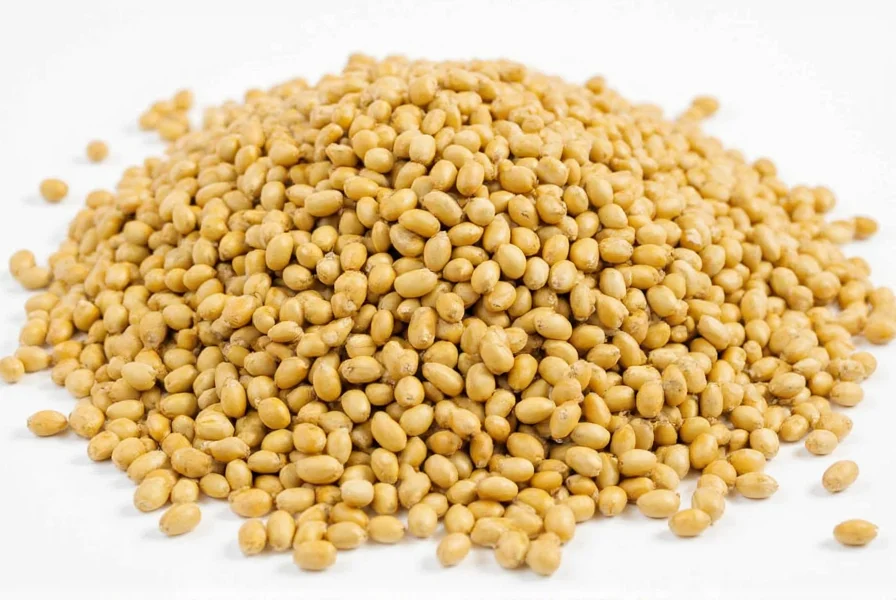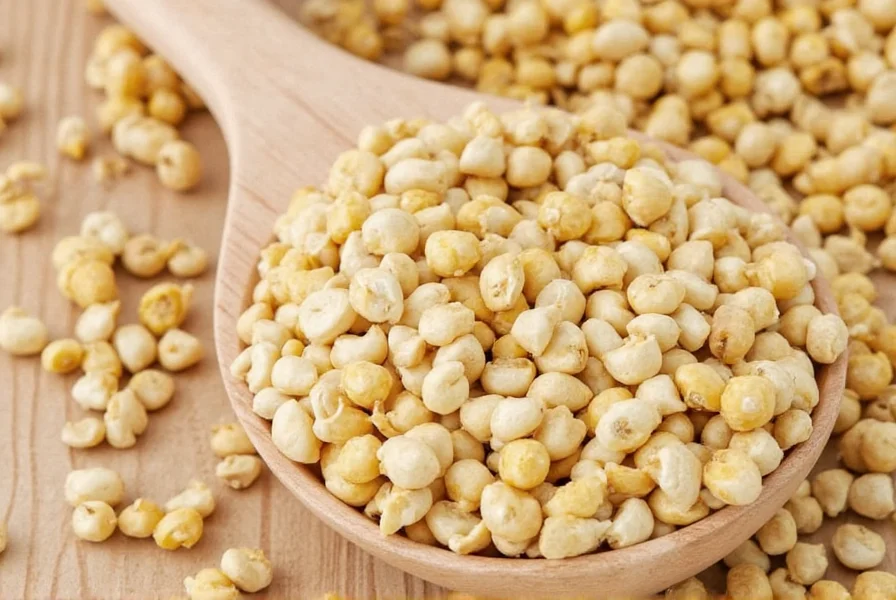Fenugreek (Trigonella foenum-graecum) has been used for centuries as a natural remedy to support lactation. Many breastfeeding individuals turn to this herbal supplement when experiencing low milk supply, but understanding its effectiveness, proper usage, and safety considerations requires examining both traditional wisdom and current scientific evidence.
What Is Fenugreek and Its Traditional Role in Lactation
Fenugreek is an herb native to the Mediterranean region and South Asia, with seeds that contain compounds potentially influencing milk production. Traditional medicine systems, including Ayurveda and Traditional Chinese Medicine, have documented fenugreek's use as a galactagogue—a substance believed to increase breast milk production—for generations.
The seeds contain phytoestrogens and diosgenin, which some researchers theorize may stimulate mammary tissue and enhance milk synthesis. While traditional use provides context, modern science offers a more nuanced perspective on fenugreek supplements for breastfeeding effectiveness.
Current Scientific Evidence on Fenugreek and Milk Supply
Research examining how does fenugreek increase milk supply shows mixed results:
| Study | Participants | Findings |
|---|---|---|
| 2011 Iranian study | 66 breastfeeding women | Significant increase in milk production after 72 hours compared to control group |
| 2018 systematic review | Multiple studies | Insufficient high-quality evidence to confirm effectiveness; called for more rigorous research |
| 2020 clinical trial | 120 postpartum women | No statistically significant difference in milk volume between fenugreek and placebo groups |
The scientific community generally agrees that while some individuals report positive results with fenugreek, the scientific evidence on fenugreek and lactation remains inconclusive due to small sample sizes, methodological limitations, and inconsistent results across studies.

How Fenugreek Is Typically Used for Lactation Support
For those considering fenugreek as a potential aid for low milk supply, understanding proper usage is essential:
- Forms available: Capsules (most common), tea, tinctures, and whole seeds
- Typical dosage: 2-6 grams daily, usually divided into 2-3 doses (equivalent to 2-3 standard 500-610mg capsules taken 2-3 times daily)
- Timing: Most users report effects within 24-72 hours if the herb will be effective
- Duration: Typically used for 1-2 weeks, though some continue longer under healthcare supervision
When determining fenugreek dosage for lactation, it's important to start with the lowest effective dose. Many lactation consultants recommend beginning with 1 capsule (500-610mg) three times daily, then increasing gradually if no response after 24-48 hours.
Safety Considerations and Potential Side Effects
While generally considered safe for short-term use, fenugreek carries potential risks that breastfeeding individuals should understand:
For the Nursing Parent
- Maple syrup-like body odor (harmless but distinctive)
- Digestive issues (diarrhea, gas, bloating)
- Allergic reactions (especially for those with peanut or chickpea allergies)
- Lowered blood sugar (concern for those with diabetes)
- Potential interactions with blood thinners and diabetes medications
For the Breastfed Infant
- Increased gas or fussiness
- Rare reports of wheezing or allergic reactions
- Loose stools
Individuals with asthma, peanut allergies, or diabetes should exercise particular caution. The side effects of fenugreek while breastfeeding can sometimes mimic more serious conditions, making professional guidance essential.
When Fenugreek Might Not Be the Best Option
Fenugreek isn't appropriate for everyone experiencing low milk supply. Consider alternatives if:
- You have a known allergy to legumes (peanuts, chickpeas)
- You're taking medications that interact with fenugreek
- You've noticed negative side effects
- You have gestational diabetes or other blood sugar concerns
- Your baby shows signs of discomfort or allergic reaction
It's crucial to recognize that low milk supply often has underlying causes that fenugreek won't address, such as improper latch, infrequent feeding, or medical conditions. Before turning to natural galactagogues for milk production, ensure you've addressed fundamental breastfeeding practices.
Complementary Approaches to Support Milk Production
For those seeking to increase milk supply, fenugreek should be considered just one potential component of a comprehensive approach:
- Frequent nursing or pumping (8-12 times in 24 hours)
- Proper latch and positioning techniques
- Adequate hydration and nutrition
- Rest and stress reduction
- Working with an International Board Certified Lactation Consultant (IBCLC)
Other herbal options sometimes used include blessed thistle, alfalfa, and brewer's yeast, though evidence for these is similarly limited. The most evidence-based approaches remain frequent milk removal and addressing underlying breastfeeding challenges.
Consulting Healthcare Professionals About Fenugreek
Before starting fenugreek or any supplement while breastfeeding, consult with:
- Your obstetrician or primary care provider
- An International Board Certified Lactation Consultant (IBCLC)
- Your baby's pediatrician
These professionals can help determine if your milk supply is genuinely low (many parents worry unnecessarily), identify underlying causes, and ensure any supplement use aligns with your specific health situation. They can also monitor for potential side effects of fenugreek while breastfeeding and adjust recommendations as needed.
Final Considerations on Fenugreek for Milk Production
Fenugreek remains a popular option among breastfeeding individuals seeking to increase milk supply, supported more by tradition and anecdotal evidence than robust scientific research. While some experience positive results, others notice no effect or encounter unwanted side effects.
The decision to use fenugreek should be made thoughtfully, considering individual circumstances, potential risks, and the availability of more evidence-based approaches to support lactation. When used appropriately and under professional guidance, fenugreek may provide benefit for some, but it's not a universal solution for milk production challenges.
Frequently Asked Questions
How quickly does fenugreek work for increasing milk supply?
Many users report noticing effects within 24-72 hours if fenugreek will be effective for them. However, responses vary significantly between individuals. Some notice increased fullness or milk flow, while others see no change even after several days of consistent use at appropriate dosages.
Can fenugreek decrease milk supply in some cases?
While uncommon, some individuals report that fenugreek actually decreases their milk supply. This paradoxical effect may occur with higher doses, as excessive stimulation can sometimes trigger a reduction in production. If you notice decreased supply after starting fenugreek, discontinue use and consult a lactation specialist.
Is fenugreek safe to use while exclusively breastfeeding?
Fenugreek is generally considered safe for short-term use while breastfeeding when taken at recommended doses, but it's not risk-free. The American Academy of Pediatrics hasn't issued specific guidance on fenugreek. Safety depends on individual health factors, potential medication interactions, and whether you or your baby have relevant allergies. Always consult your healthcare provider before starting any supplement while breastfeeding.
What are the signs that fenugreek is working for milk production?
Signs that fenugreek may be increasing your milk supply include feeling fuller between feedings, seeing increased milk flow during pumping or nursing, your baby having more wet diapers, and potentially gaining weight appropriately. However, these signs can also result from improved feeding techniques or frequency, so it's difficult to attribute changes solely to fenugreek without professional assessment.
How long should I take fenugreek for lactation support?
Most lactation consultants recommend using fenugreek for 1-2 weeks to assess effectiveness. If you see improvement in milk supply, you can gradually reduce the dosage while monitoring supply. Many people discontinue use once supply stabilizes, typically within a few weeks. Long-term use beyond 4-6 weeks isn't generally recommended without specific medical supervision due to potential side effects and lack of research on extended use.











 浙公网安备
33010002000092号
浙公网安备
33010002000092号 浙B2-20120091-4
浙B2-20120091-4